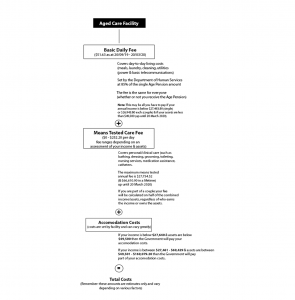We hope that you found last month’s article regarding Retirement Villages valuable and informative, (click here to read it if you missed it) and this article will follow on from that article with a focus on aged care facilities / nursing homes to enable our readers to gain a greater understanding of the options available for out of home care.
As previously advised, at Affinity Lawyers, we want to make sure that our clients are aware of all of the possible risks and costs associated with both Retirement Villages and Aged Care Facilities / Nursing Homes, to ensure that the option chosen is the best for you and your family in all of the circumstances.
Again, while we cannot cover all eventualities and risks in this brief article, we wanted to highlight some of the main facts that you or your family may not have been aware of when it comes to retirement villages or nursing homes.
Aged Care Facilities / Nursing Homes
An aged care or nursing home facility is more suitable for those who require a significantly higher level of assistance, or who are not able to live independently. These facilities generally have round-the clock emergency care on hand, and provide daily services for residents such as personal maintenance (showering, toileting) together with feeding assistance for those who are incapable of completing these tasks.
Prior to entering into an agreement with a care facility, an Aged Care Assessment (or ACAT) is undertaken to determine the level of care that is required. While this is an important step in deciding which facility will be suitable for your needs, it is also prudent to think about what level of care may be required in the longer term to ensure that the facility chosen is able to accommodate changing needs, and removes the need for having to move to another facility at a later time.
In addition to considering the care level that can be provided, it is also important that the financial aspect is considered as well to ensure suitability for your financial circumstances as you will also be required to pay an accommodation payment on top of your basic daily fee and daily care fee.
Below is a basic outline of the types of fees you can be expected to pay when entering into an aged care facility.

Generally, an aged care facility or nursing home will require the resident to enter into a ‘Residential Care Agreement’ (RCA) which will set out both parties rights, responsibilities, date of proposed entry and whether there are any extra services required.
The agreement generally has a 14 day cooling off period in which you can change your mind after signing.
Once you have entered into the RCA, you will then have 28 days to decide on your payment method for the accommodation payment. Different facilities have different payment options including:
- A lump sum or refundable accommodation amount (Refundable Accommodation Contribution (RAC) (if Government is assisting) Refundable Accommodation Deposit (RAD) (if you are self-funding);
- A rental style daily payment (a daily accommodation charge) (Daily Accommodation Contribution (DAC) (if Government is assisting) or Daily Accommodation Payment (DAP) (if you are self-funding);
- A combination of both options (e.g. $150,000 refundable lump sum amount plus the remainder by way of small, non-refundable daily payments).
If you have paid a RAP, then generally the facility will be required to refund your payment within 14 days of you leaving the facility or, if you pass away, within 14 days after you estate has obtained a Grant of Probate of your Will.
As you can see, the decision to move into an aged care facility is complex, and involves various documents, agreements, charges and other considerations.
Our Gold Coast lawyers are experienced in this area, and can provide you and your family with professional advice in relation to facility agreements before you sign them, as well as provide guidance in relation to your estate planning, and the maze of requirements involved in entering into an aged care facility or nursing home.
The Wills & Estate team at Affinity Lawyers in Runaway Bay are here to help guide you and help you make an informed choice on the best pathway for your individual circumstances, so feel free to contact one of our solicitors today to arrange a thorough estate planning consultation and to discuss any aged care or nursing home matters on 5563 8970.

